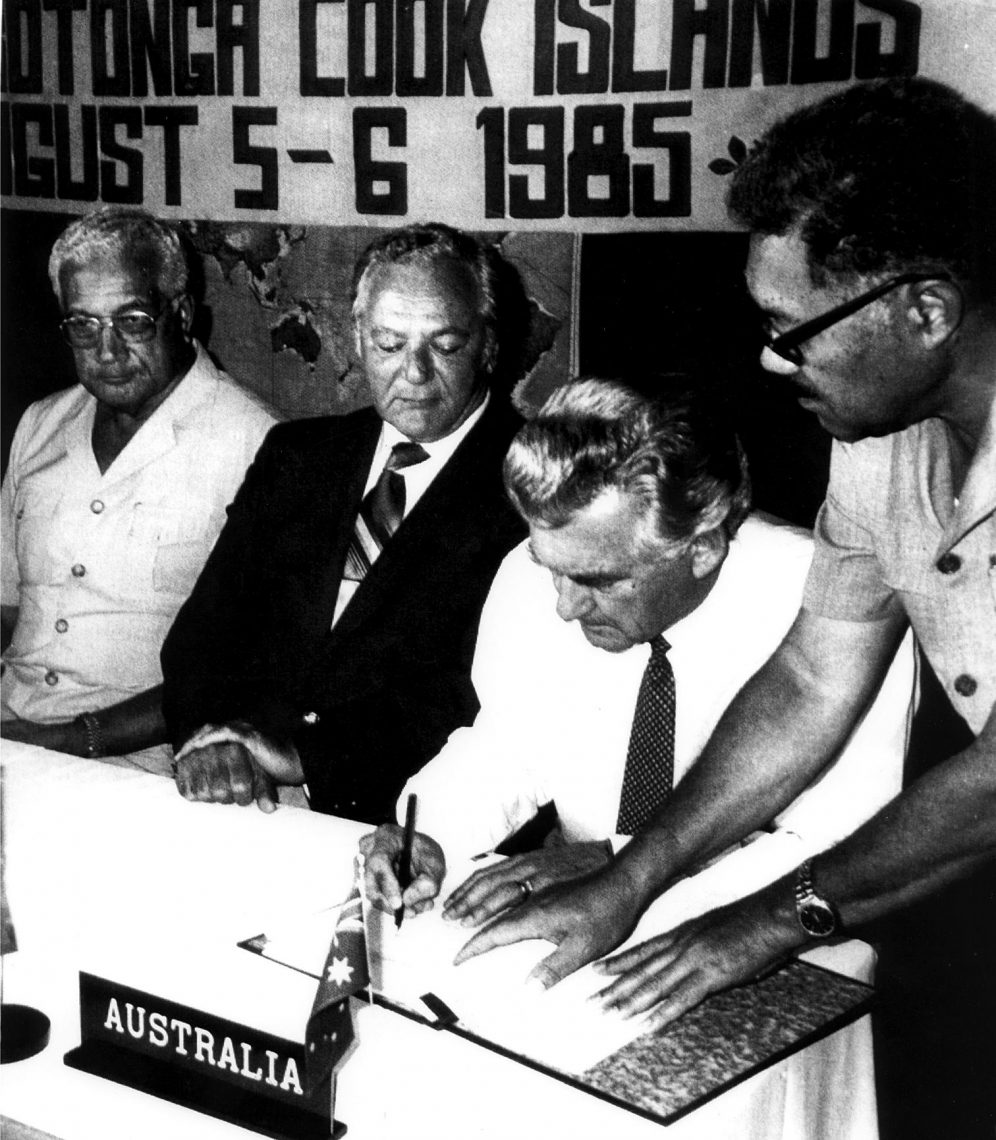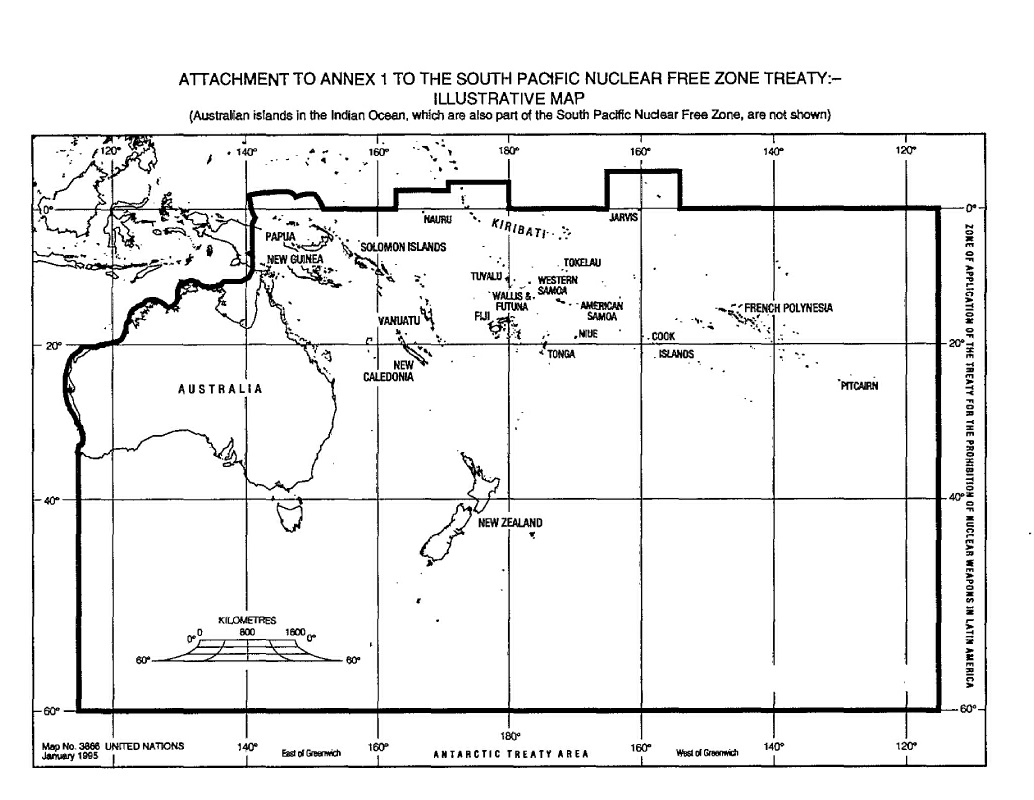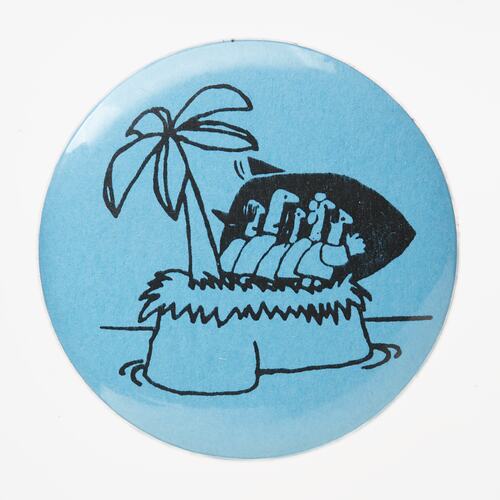Today marks the 70th anniversary of Operation Hurricane: the first atmospheric test of a British #nuclear weapon in Australia. A plutonium implosion device was detonated on 3 October 1952 in Main Bay, Trimouille Island, in the Monte Bello Islands off Western Australia. THREAD 

After the United States refused to let Britain use test sites in Nevada and Marshall Islands, the first UK atomic device was transported to Australia aboard HMS Plym. At Monte Bello the bomb was detonated inside the frigate, to simulate an enemy sailing a bomb into a British port 

The Hurricane test had an explosive yield of 25 kilotons – larger than the blast which destroyed the Japanese city of Hiroshima. It spread contaminated debris over Trimouille Island and, as winds changed, fallout to the mainland. 



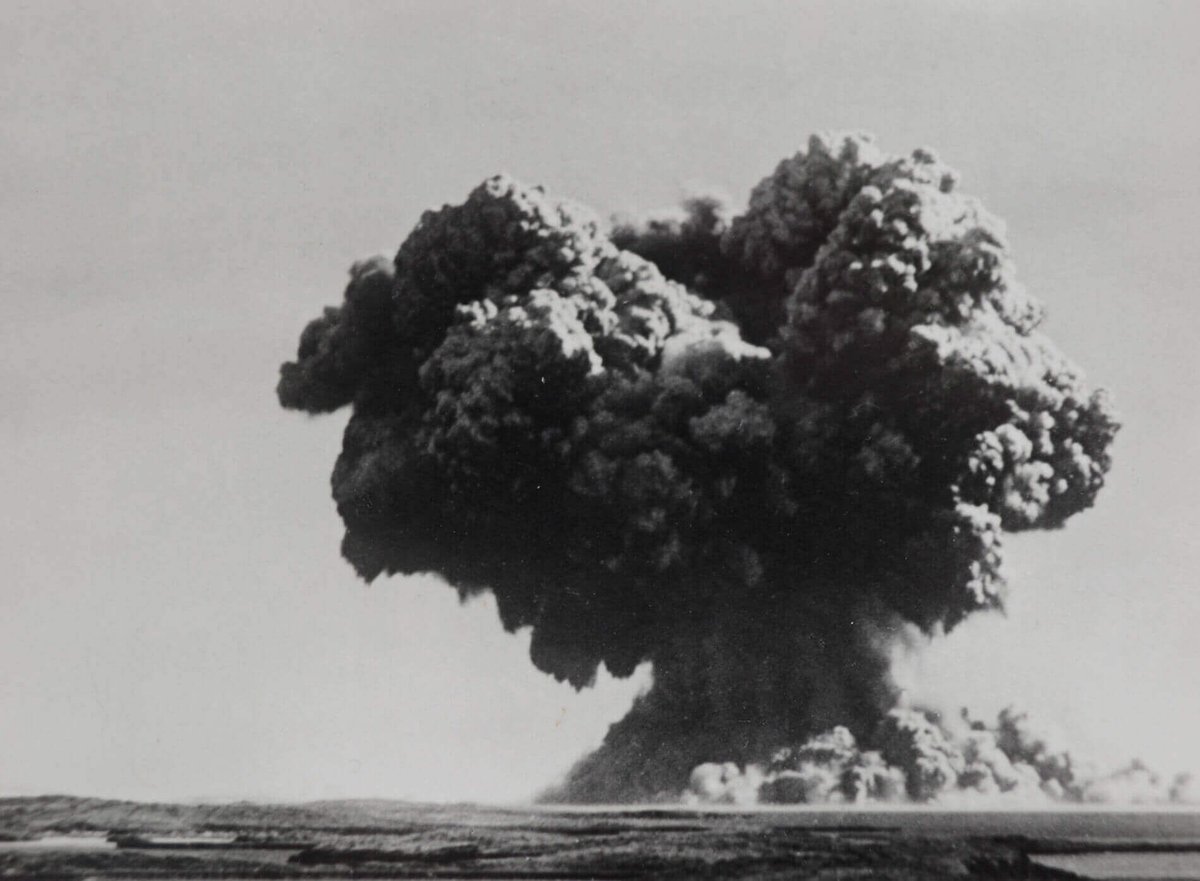
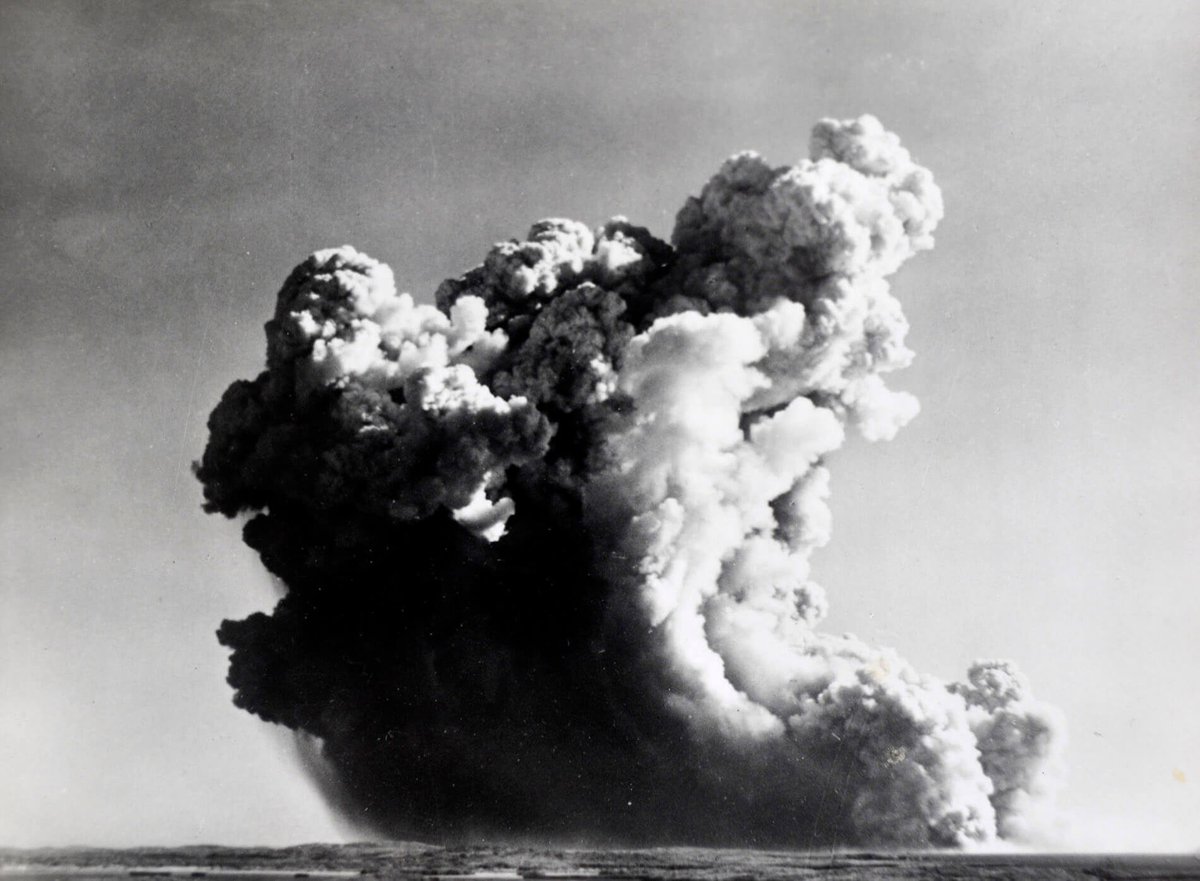


At the time, the UK Daily Mirror declared: “This bang has changed the world… it signalled the undisputed return of Britain to her historic position as one of the world’s great powers. She can defend herself, she can defend others.”
damned.mirror.co.uk/img/docs/hurri…
damned.mirror.co.uk/img/docs/hurri…
A 1952 UK propaganda film claimed “this test was carried out with the fullest co-operation of the Commonwealth of Australia.” Not true, as the #atomic tests were initially approved by Prime Minister Robert Menzies without Cabinet or parliamentary approval. media.nationalarchives.gov.uk/index.php/oper…
After more Mosaic tests at Monte Bello in 1956, Supply Minister Howard Beale prevailed on newspaper editors to “damp down” reports of a fallout cloud passing across the mainland: “Had this wild story really got going, I doubt that we could have gone ahead with any more tests.” 

Today, 70 years after the first British #nuclear test in #OperationHurricane, the Australian Radiation Protection and Safety Agency (ARPANSA) advises visitors not to spend more than an hour per day at contaminated sites at Monte Bello. arpansa.gov.au/understanding-… 

Hurricane was the first of 12 UK atomic tests in Australia between 1952-57 at Monte Bello, Emu Field and Maralinga - a prequel to the development of the British hydrogen bomb, with nine thermonuclear weapons tests on Malden and Kiritimati Islands in 1957-8 press.anu.edu.au/publications/s…
UK, Australian, NZ and Fijian veterans are still campaigning for compensation for the adverse health effects of exposure to ionising #radiation – successive UK governments have refused to set up adequate compensation programs for the 20,000+ participants.
whynow.co.uk/read/britain-n…
whynow.co.uk/read/britain-n…

For more history of UK nuclear colonialism in Australia and the effects on indigenous Anangu and service personnel, get Elizabeth Tynan’s 2016 “Atomic Thunder: the Maralinga story” and her new book “The Secret of Emu Field.” @BNTVA @atomiclabrats
australianbookreview.com.au/abr-online/cur…
australianbookreview.com.au/abr-online/cur…
• • •
Missing some Tweet in this thread? You can try to
force a refresh


